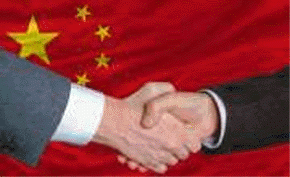
By Jason Young*
Commentators have talked a lot about the coming ‘Pacific Age’ as the world’s economic gravity shifts from the Atlantic to the Pacific Ocean.
As small economies in the region, Pacific Island states have often struggled to connect to the region’s traditional centres of growth. It is no surprise then that they are now seeking economic opportunities with the newly emerging Pacific Rim economies.
China’s stepped-up economic and diplomatic engagement in the region is seen as one such opportunity.
China’s Pacific Strategy
China has not articulated a unique or coherent Pacific strategy but has increased its focus on regional diplomacy since the turn of the century.
The change can be neatly summarised using the maxim put forward by Deng Xiaoping: ‘keep a low profile and strive for some achievement’ (韬光养晦、有所作为).
Under Deng the emphasis was on ‘keeping a low profile’ or maintaining a benign international environment. Today, China’s foreign policy has noticeably become more proactive as it focuses more on ‘striving for some achievement’.
As in other parts of the world, ‘striving for achievement’ in the Pacific means increasing diplomatic, economic and cultural engagement as well as initiating new regional forums and institutions led by China.
China is developing its own trade networks, value chains and links to resources in the region in an extension of its strategy to develop the ‘Maritime Silk Road of the 21st Century’ (21世纪海上丝绸之路).
China in the Pacific
Chinese trade has grown quickly from a relatively low base at the turn of the century. Trade with Fiji, for example, has reached US$340 million and is growing at 12% annually.
Chinese tourism is also increasing rapidly as Pacific countries seek out the expanding Chinese market. In Fiji alone, Chinese tourist numbers have grown sevenfold over the past six years.
Chinese enterprises have sped up their pace of ‘going out’ (走出去) to Oceania, with investments in the fields of energy and mining resources, agriculture, aquatic products and tourism co-operation.
These efforts have been supported by sustained diplomatic efforts to strengthen relations with individual Pacific Island states and the region as a whole.
Former Premier Wen Jiabao attended the inaugural China-Pacific Island Countries Economic Forum in Fiji in 2006 where he pledged a raft of co-operation policies including ¥3 billion of preferential loans to the region.
President Xi visited Fiji in November 2014 reaffirming the growing strategic importance of the region for Chinese policymakers.
China recently became the Pacific’s third largest aid donor, introducing a style of aid delivery different to traditional donors and providing flexibility for Pacific recipients.
The View from Oceania
Such efforts raise debates over the implications of large preferential loan debt, the effectiveness of Chinese aid projects and their compatibility with existing donors.
Chinese investment creates debate over the ownership of resources. Chinese small business owners have at times born the brunt of local opposition, such as during the 2006 rioting and destruction of Chinatown in the Solomon Islands.
But the debate is in no way one-sided with many Pacific leaders strongly supporting China’s approach to Pacific engagement.
They argue it focuses on economic development through loans and infrastructure development to promote exports and investment for long-term Pacific growth and that this approach gives them more flexibility.
For example, in 2006 Samoa’s Prime Minister stated China was a truer friend of Pacific countries. In 2014, the Tongan Prime Minister defended low-interest loans from the state-owned Export-Import Bank of China.
In 2015, Fiji’s Prime Minister stated China had done a huge amount to improve Fiji's infrastructure, including roads, public housing, hydroelectric and solar projects and hospitals.
New Zealand, China and the Pacific
For New Zealand, this adds a new dynamic to our already strong relations with China.
New Zealand Aid is partnering with China and the Cook Islands to roll out water infrastructure in Rarotonga and actively working through differences in how each country approaches aid delivery.
There should be a place for the Pacific in the evolving economic architecture, be it TPP (Trans-Pacific Partnership), RCEP (Regional Comprehensive Economic Partnership) or FTAAP (Free Trade Area of the Asia Pacific). New Zealand’s first mover advantage with the NZ-China FTA and membership in the above proposals provide an opportunity to shape regional economic institutions to Pacific needs.
As the only Pacific member of the China-backed Asian Infrastructure Investment Bank, New Zealand is well placed to direct infrastructure development projects to the Pacific and to support the development of effective and coordinated programmes for regional development.
As custodians of some of the largest and most pristine marine and agriculture resources, Pacific nations are well placed to push for environmental, climate and resource management governance in the region.
In short, when searching for ways for the Pacific to be part of the Pacific Age, China’s activities, be they opportunities or challenges, compel states in the region to work together to safeguard and promote Pacific interests.
----------------------------------------------------------
Jason Young is a Lecturer in Political Science and International Relations and a Research Fellow at the New Zealand Contemporary China Research Centre in Victoria University of Wellington.

We welcome your comments below. If you are not already registered, please register to comment
Remember we welcome robust, respectful and insightful debate. We don't welcome abusive or defamatory comments and will de-register those repeatedly making such comments. Our current comment policy is here.